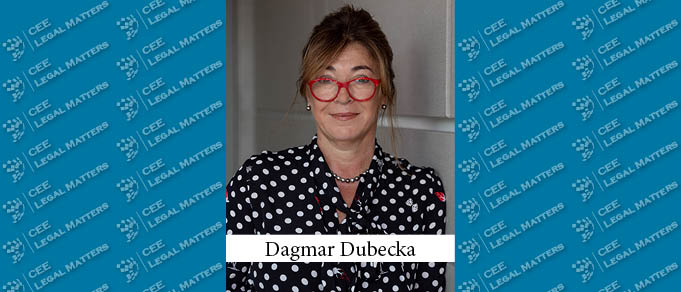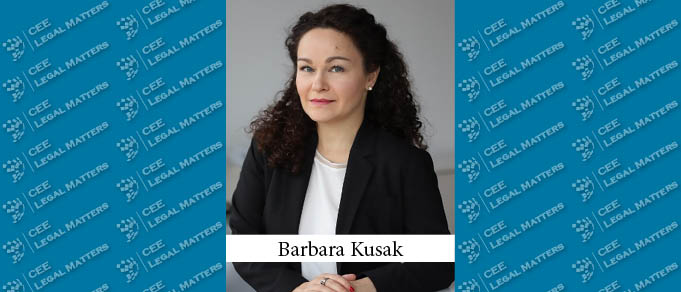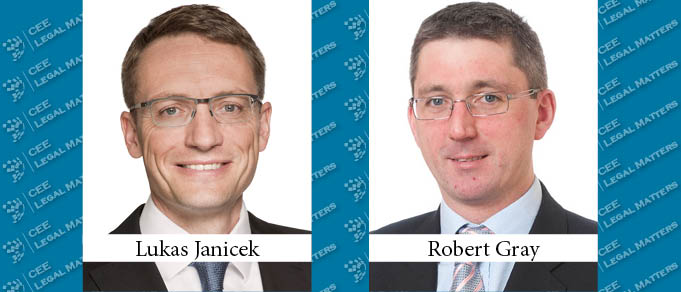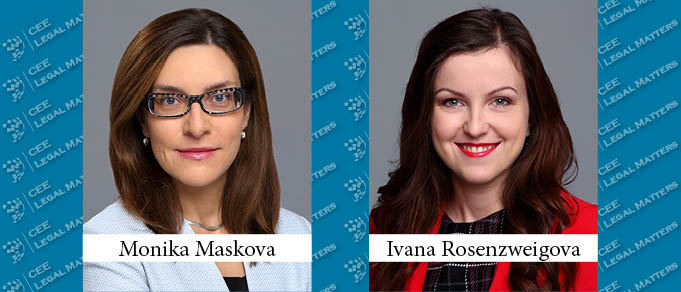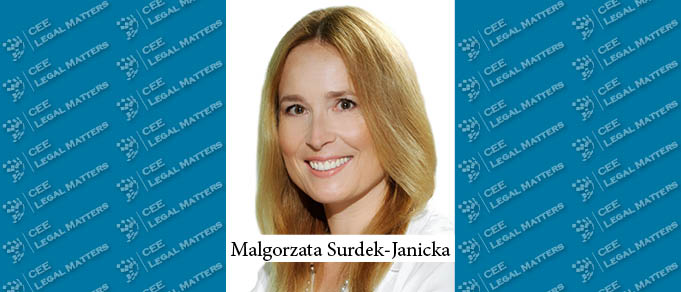An amendment to the VAT Act in e-commerce is expected to come into effect in the coming days as part of the ongoing law-making process. The amendment implements the EU Council’s tax package into the Czech system of laws. It also introduces significant changes to imports, cross-border trade within the EU and extends the possibilities for the use of the special one-stop-shops.
Josef Adam Leaves Private Practice to Join CZG as Group General Counsel
Former Havel & Partners Partner Josef Adam joined CZG - Ceska Zbrojovka Group SE as the Group General Counsel.
What’s New in the Amendment to the Public Health Insurance Act
On 14 September 2021, the Chamber of Deputies approved the long-awaited amendment to Act No. 48/1997 Coll., on Public Health Insurance (the “Act”), as returned by the Senate (the “Amendment”). It now awaits signing by the President of the Czech Republic. The Amendment brings a wide range of changes and innovations, such as rules for the entry of innovative drugs and orphan drugs into the reimbursement system, the creation of centres for rare diseases and mental health centres, and the introduction of a definition of a patient organisation.
Stricter Rules for Cookies in the Czech Republic from 2022
The Czech Chamber of Deputies approved an amendment to Act No. 127/2005 Coll., on Electronic Communications (hereinafter referred to as the “ECA”), after the Czech Senate returned it earlier. The purpose of this amendment is primarily to harmonise Czech legislation with the European Electronic Communications Code. However, the amendment will also affect other areas that are not directly related to the Code. One of the most significant changes will affect anyone who operates a website or mobile application and uses statistical, analytical or advertising tools. The change is to move from the current opt-out principle for the use of cookies and similar tracking technologies to an active user consent regime, the so-called opt-in regime.
The Buzz in the Czech Republic: Interview with Dagmar Dubecka of Kocian Solc Balastik
The Czech Republic is experiencing strong positive winds, irrespective of the severity with which the pandemic struck, and there are things aplenty to be happy about, according to Kocian Solc Balastik Partner Dagmar Dubecka.
Whistleblowing – the Biggest Compliance News since the GDPR. Are You Ready for It?
With the implementation deadline for the EU Directive on the protection of persons who report breaches of Union law (17 December 2021) approaching, here is a summary of the current state of the respective national measures in the Czech Republic and Slovakia and an introduction to our own whistleblowing solution: FairWhistle.
Edit Rosta Joins SAP as Senior Legal Counsel in the Czech Republic
Former 3M General Counsel Edit Rosta has joined SAP in Prague as a Senior Legal Counsel.
Privacy Trends in the Czech Republic
Privacy pros are now celebrating the three-year anniversary of the GDPR, even as we are living through the current pandemic. It is, in fact, almost impossible to talk about privacy trends without touching on the COVID-19 crisis.
Financial Restructuring and Consolidation in the Hotel Sector in CEE
Few global industries have been as strongly affected by the COVID-19 pandemic as the hotel industry. All over the world, chains and bespoke hoteliers have had to face the impact of travel restrictions on bookings, in most cases leading to dire falls in occupancy rates and, subsequently, income. Now that the pandemic has been wreaking havoc for over a year, how is the hotel industry in CEE coping, and what options do hoteliers have? We spoke with three CMS Partners – Ana Radnev, Gregor Famira, and Lukas Hejduk – to get their opinions on the current situation and outlook on the future of the sector.
Long-awaited Bill on Preventive Restructurings Finally Released. What Changes Will It Bring to Czech Insolvency Law?
The Czech Ministry of Justice recently published a bill on preventive restructurings (the "Bill") implementing the directive on preventive restructuring frameworks which will introduce a brand-new legal tool preventing the insolvency of viable enterprises in temporary financial difficulties.
The Buzz in the Czech Republic: An Interview with Barbara Kusak of Noerr
According to Barbara Kusak, Partner at Noerr in Prague, the Czech Republic is currently preparing for its upcoming general elections. She also notes that the Czech economy shows no signs of contraction, despite the country’s abysmal COVID-19 infection rates, and that the infrastructure, IT, and e-commerce sectors are on the rise.
Deal Expanded: Interview with CMS on 2020 DOTY for the Czech Republic
CMS’s Lukas Janicek and Robert Gray Talk About The Deal of the Year in The Czech Republic.
A New Layer of Protection for Consumers?
Once the amendment to the Czech Consumer Protection Act becomes effective, consumer protection rules shall have to start being reflected in the digital world. If the amending legislation is passed in its current draft form, consumer protection rules shall also apply to the offering and provision of digital content and services, even if the consumers "pays" for them with their personal data. Violations of the new obligations shall be punishable by a fine of up to CZK 50.000.000 or 4% of the trader’s annual turnover. The amendment implements the requirements set by EU law.
Czech Republic: Data Privacy in Clinical Trials
The COVID-19 pandemic has accelerated the digital evolution of clinical trials. Introducing new technologies and ways of working with clinical data, improving clinical data access, review, and monitoring processes, and making better use of the data for further scientific research are trends that are here to stay. Side by side with these developments come legal questions about personal data protection. The aim of this article is to shed light on the core legal issue in data processing within clinical trials: its legal basis.
The Corner Office: Childhood Dreams
In “The Corner Office” we ask Managing Partners at law firms across Central and Eastern Europe about their backgrounds, strategies, and responsibilities. The question this time: “What did you most want to be when you were little?”
ICC International Court of Arbitration Appoints Malgorzata Surdek-Janicka as Vice-President
CMS' Malgorzata Surdek-Janicka has been appointed as Vice-President of the International Court of Arbitration at the International Chamber of Commerce in Paris. Aside from Surdek-Janicka, 33 lawyers from CEE were appointed as members and alternate members of the court.
A Change in the Interpretation of Manifest Disruption of Public Order in the Conception of Absolute Invalidity of a Legal Act
On the 10th of June 2020, the Grand Chamber of the Supreme Court of the Czech Republic passed a judgment in case Ref. No. 31 ICdo 36/2020, which dealt with the validity of a contract concluded between the sole proprietor of a company and the same company represented by its sole proprietor. In this case, the Supreme Court deviated from its past decisions on the issue of interpretation of the notion of manifest disruption of public order. Whereas the Supreme Court had previously interpreted the word “manifest” as expressing the degree of intensity of public disturbance, the current decision accepted that a manifest disruption of public order could be interpreted as an undoubted or unambiguous disruption of public order, without regard to the intensity of the disruption.
Clinical Trials as of 31 January 2022 under New “EU” Regime
On 31 January 2022, the “new” Regulation (EU) No. 536/2014 of the European Parliament and of the Council of 16 April 2014 on clinical trials on medicinal products for human use and repealing Directive 2001/20/EC (the “Regulation“) will enter into force. After several delays (the launch was originally planned for 2015), the European Medicines Agency (the “EMA”) has confirmed to the Commission that the EU portal and the EU database, which were a prerequisite for the launch, are now fully functioning. At the same time, the EMA confirmed that the EU portal and database will be put into operation on 31 January 2022. As of this date, the Regulation will become fully applicable in all EU Member States.





